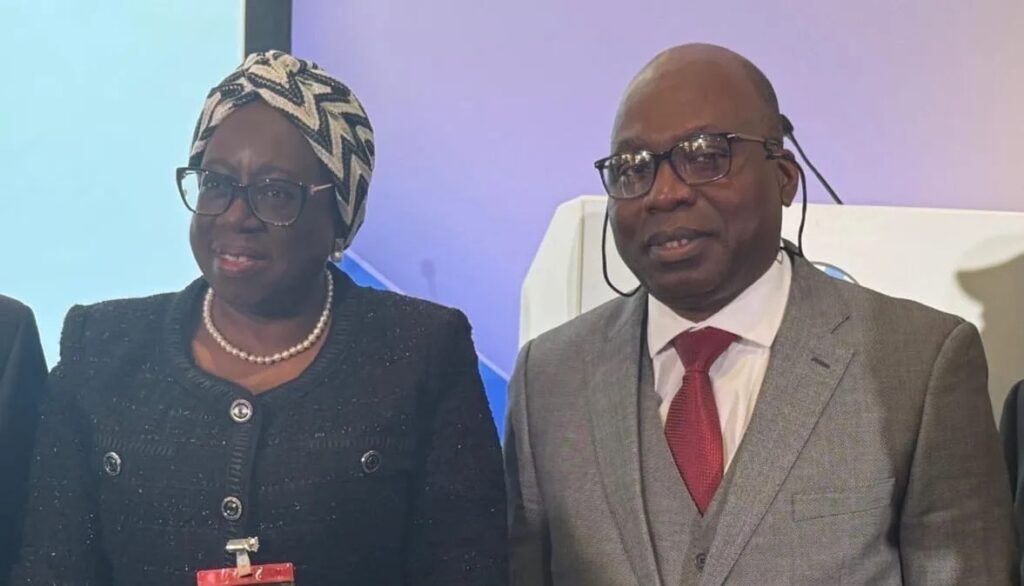By Chinwendu Obienyi
Growth in Nigeria’s private sector accelerated in August, buoyed by stronger customer demand and easing inflationary pressures, according to the latest report from Stanbic IBTC Bank Purchasing Managers’ Index (PMI).
The headline PMI rose slightly to 54.2 in August from 54.0 in July, marking the ninth straight month above the 50.0 threshold that signals expansion. The reading reflected the strongest improvement in business conditions since April, underpinned by sharper increases in new orders and output.
googletag.cmd.push(function() { googletag.display(‘div-gpt-ad-1718806029429-0’); });
According to the report, the uptick was driven largely by sharper increases in new orders and output. Output growth rose to a four-month high of 56.8 points, while new orders surged to a 19-month peak of 58.3 points. Both measures reflected stronger customer demand and firms’ willingness to commit to new projects despite lingering structural challenges in the economy.
Head of Equity Research West Africa at Stanbic IBTC Bank, Muyiwa Oni, said, “Business activity increased further in August and has remained above 50 points for the ninth consecutive month. The increase was driven by sharper increases in output and new orders”.
Three of the four broad sectors surveyed posted growth in August, with manufacturing the only laggard. The services sector led the momentum, reflecting the broader rebalancing of Nigeria’s economy toward non-oil activities.
Employment trends were less upbeat. Although firms continued to expand staffing levels for a third consecutive month, the pace of job creation slowed from July. Businesses nevertheless responded to rising demand by increasing input purchases and building inventories, suggesting optimism about future workloads.
The survey also highlighted a slower but still marked increase in input buying, as companies sought to strengthen supply chains and lock in materials ahead of expected project execution.
A key highlight of the August PMI was the noticeable easing of inflationary pressures. Input costs rose at the weakest pace since March 2023, while output charges also moderated for the fourth consecutive month, registering the slowest increase since April 2020.
For businesses, this easing offers some breathing space after years of cost pressures linked to exchange rate volatility, high fuel prices, and imported inflation.
“The continued moderation of input and output prices suggests inflation is likely to remain soft in the near term, and may incentivize the CBN’s Monetary Policy Committee to adopt an accommodative stance by September from the current neutral stance,” Oni noted.
Stanbic IBTC projects that headline inflation may ease further to between 21.45 per cent and 21.63 per cent year-on-year in August, with a sharper moderation to 17.19 per cent –17.9 per cent by November 2025. The bank also anticipates that the Central Bank of Nigeria could cut interest rates by up to 150 basis points in 2025, reversing its earlier tightening cycle.
If realized, lower borrowing costs would provide relief for businesses and consumers, supporting fresh investments and potentially accelerating the recovery in sectors such as manufacturing and trade that have been hit hardest by high financing costs.
The PMI report also placed the private sector performance in the broader macroeconomic context. Nigeria’s rebased GDP expanded by 3.13 per cent year-on-year in Q1 2025, down from a revised 3.76 per cent in Q4 2024, and the weakest since Q1 2024.
While the services sector retained dominance with a 78.6 per cent contribution, agriculture’s share slumped sharply to just 0.5 per cent, compared to 19.7 per cent in the previous quarter. The contraction highlights challenges in the rural economy, including rising insecurity, weather disruptions, and high input costs.
By contrast, industries doubled their contribution to 20.9 per cent, buoyed by structural shifts linked to the Dangote Refinery and associated value-chain activities.
Analysts say the refinery’s operations are gradually reshaping Nigeria’s industrial landscape, with spillover effects expected across petrochemicals, transport, and logistics.
Despite a softer GDP outturn, Stanbic IBTC remains optimistic. The bank expects the Nigerian economy to grow by 3.5 per cent in 2025, slightly higher than 2024’s 3.4 per cent . Softer inflation, improved foreign exchange liquidity conditions, and ongoing structural reforms are seen as key supports for growth.
The PMI’s August reading underscores this resilience. Stronger customer demand, easing inflationary pressures, and rising optimism among firms point to a private sector that is cautiously regaining confidence.
However, risks remain. Persistent weaknesses in agriculture, slower job creation, and fragile manufacturing activity could temper the recovery if left unaddressed. The trajectory of inflation and monetary policy will also be critical in shaping business sentiment in the months ahead.
For now, though, the PMI signals that Nigeria’s private sector is building momentum, positioning itself for steady if uneven growth through the remainder of 2025.
The post Fight cross-border tax crimes or risk global instability, FIRS boss charges world leaders appeared first on The Sun Nigeria.


